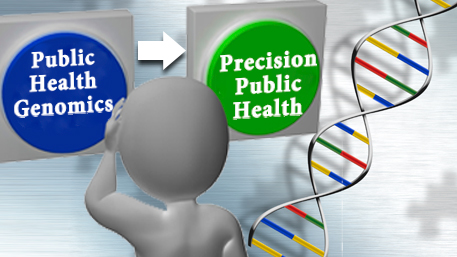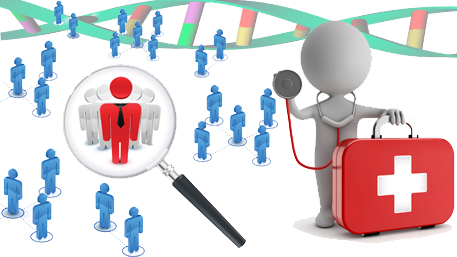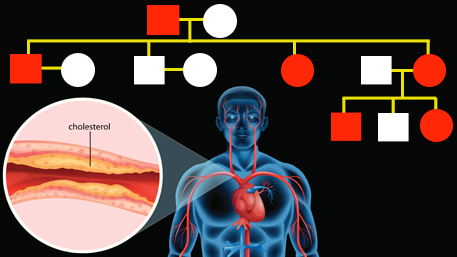Search Results
10 results for population screening
Happy Thanksgiving 2019: Collect and Share Your Family Health History: It Could Save Your Life!

Happy Thanksgiving Day! It is time for our yearly message on the importance of family health history to your own health. Year after year we promote the value on family health history around Thanksgiving day and all year round. By knowing and acting on your family history, you can reduce your disease risk and actually
Posted on byCan an Aspirin a Day Prevent Colorectal Cancer in People with Lynch Syndrome?

Encouraging news for group at much greater risk of CRC Lynch syndrome (LS) is the most common cause of hereditary colorectal (colon) cancer (CRC). People with LS have a 50-70% risk of developing CRC in their lifetimes – far higher than the 4% risk within the general population where CRC is a leading cause of
Posted on byGenetic Counseling and Public Health in the Era of Precision Medicine

In August 2019, the All of Us Research Program announced the funding of a nationwide resource to provide genetic counseling support to one or more million participants in the precision medicine cohort in the United States. Participants from diverse populations will share health information over time through surveys and electronic health records, and they will
Posted on by 1 CommentImplementation science and genomic medicine in action: A case study

There is an urgent need for researchers and implementers of genomic medicine to incorporate implementation science into their translational research efforts. Implementation science is the study of methods to promote the adoption and integration of evidence-based practices, interventions, and policies into routine healthcare and public health settings to improve our impact on population health. But
Posted on byPublic Health Genomics: What’s Next?

In the 1990’s, the excitement surrounding the Human Genome Project led the public health community to plan for the future role of genomics in health care and disease prevention. The field of public health genomics was launched to identify opportunities for the new science to impact health, inform public health programs and health care providers
Posted on byPreventive medicine can be more precise and precision medicine can be more preventive!

In a recent JAMA viewpoint, Psaty and coauthors compare precision medicine and preventive medicine as two distinct models in medicine and public health. They use the example of hemophilia B to illustrate how new gene therapy can successfully target treatment with high specific-activity factor IX variant. They contrast this model of precision medicine with the
Posted on by 1 CommentYour Top 10 Public Health Genomics Knowledge Base Searches in 2018!

Genetic counseling, Alzheimer’s disease, and personal genomics top the list. Top 2018 PHGKB Search Terms Genetic counseling Alzheimer’s disease Personal Genomics Autism Disparities Nutrigenomics Familial Hypercholesterolemia Precision Public Health Precision Medicine Rare Diseases Recently, USA Today revealed 2018’s most popular Google search terms with (the) “World Cup” topping the list. Aptly named, the event, taking
Posted on byHappy Thanksgiving 2018: Protect your family’s health by using My Family Health Portrait to collect and share your family health history

Happy Thanksgiving Day! It is time to send our yearly message on the importance of family health history to your own health. Every year we emphasize a slightly different version of this message. In 2017, we highlighted the simple fact that even in the age of genomics and precision medicine, family health history remains as
Posted on byPerspectives from a state genetics coordinator: Public health’s role in addressing familial hypercholesterolemia (FH) in the United States

For several years I have pondered what should or could be the state public health agency role in addressing FH. Most of my public health genetics colleagues were actively working on other CDC-labeled tier 1 conditions, such as Lynch syndrome (LS) and Hereditary Breast and Ovarian Cancer syndrome (HBOC). While few, if any, of my
Posted on byThe Road Less Traveled: Genomic Epidemiology Capacity in State Public Health Programs

In 2017, the Council of State and Territorial Epidemiologists (CSTE) published its latest Epidemiology Capacity Assessment of state health departments’ workforce size and resources. The assessment inquired about the number of current and optimal epidemiologist positions; sources of epidemiology activity and funding; and states’ self-perceived capacity to lead epidemiology activities, provide expertise, and manage resources
Posted on by